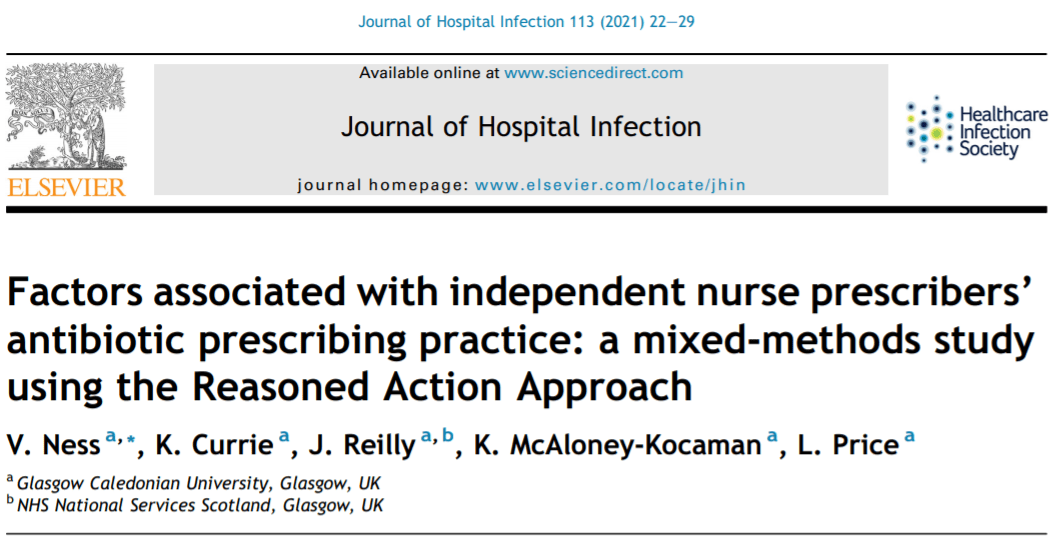Antimicrobial resistance (AMR) has been declared one of the greatest threats to global health. Resistance occurs when a microbe mutates or acquires genetic information from another microbe, making it resistant to antibiotics. There are many contributing factors, one being antibiotic use in humans, therefore, improving antibiotic prescribing is crucial.
Most available research on antimicrobial prescribing has focused on the decisions of doctors but with the increase in the numbers of nurse independent prescribers (NIPs), understanding their practice is essential. Evidence suggests that self-limiting upper respiratory tract infections (URTIs) resolve without antibiotics, yet they are often prescribed; targeting these is therefore a priority recommendation in the fight against AMR.
The findings of a mixed-method study has just been published in the Journal of Hospital Infection which aimed to measure NIPs’ intention to manage patients presenting with an URTI for the first time without prescribing an antibiotic, and to examine the determinants of this behaviour.
The study interviewed 27 NIPs and then this information was used to develop a questionnaire which was then emailed to all nurse prescribers in Scotland. The questionnaire asked them about their intention to manage patients without prescribing an antibiotic and about the influences on this intention.
The study found that NIPs intended to manage patients, presenting with an URTI for the first time, without prescribing an antibiotic. The key determinants of this intention were positive social influence, control over the behaviour and moral responsibility. The study also explored prescribers’ beliefs in relation to influences on this behaviour and found that both the positive social influence from other nonmedical prescribers, and experience and confidence were facilitators to managing patients without prescribing an antibiotic. However, the barrier of pressure from patients/carers was also a significant influence on their behaviour. Two-thirds of the respondents stated they felt under pressure from patient and relatives to prescribe antibiotics, and a third said that they may change their prescribing behaviour because of this pressure. However, in the interviews NIPs explained that they use many strategies to manage patient expectations such as education, symptom management and empowering patients to self-manage, and this avoids prescribing an antibiotic. They discussed how they can do this because they often have more time with the patient and/or know the patient.
There are key implications for practice which have come from this study. One key intervention could focus on highlighting to NIPs that patients may present expecting antibiotics and acknowledge the pressure this puts them under. Therefore, guidance about strategies to manage these expectations such as safety netting (return appointments, delayed prescribing, monitoring), education, symptom management and empowering patients to self-manage, along with protected time to deliver these strategies should be a priority for stakeholders.
Nurse prescribing is expanding globally and these findings provide reassurance that NIPs intend to prescribe appropriately but they also identify specific barriers and enablers which need to be acknowledged and targeted in future interventions to manage this behaviour.
The research paper entitled ‘Factors associated with independent nurse prescribers’ antibiotic prescribing practice: A mixed methods study using the Reasoned Action Approach’ was published in Elsevier’s Journal of Hospital Infection.
The research was supported by a Chief Scientist Office/Scottish Infection Research Network funded PhD training fellowship.

Dr Ness, and co-authors Professor Kay Currie, Professor Jacqui Reilly, Dr Kareena McAloney and Professor Lesley Price, are all researchers in GCU’s Safeguarding Health through Infection Prevention (SHIP) Research Group. The SHIP team is part of the University’s Research Centre for Health (ReaCH) – improving health and wellbeing for all.
